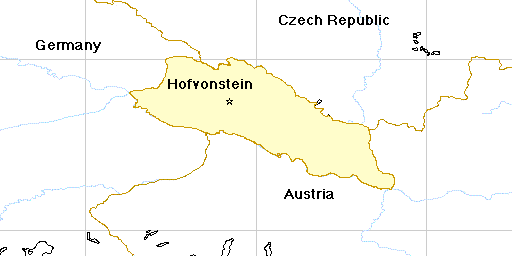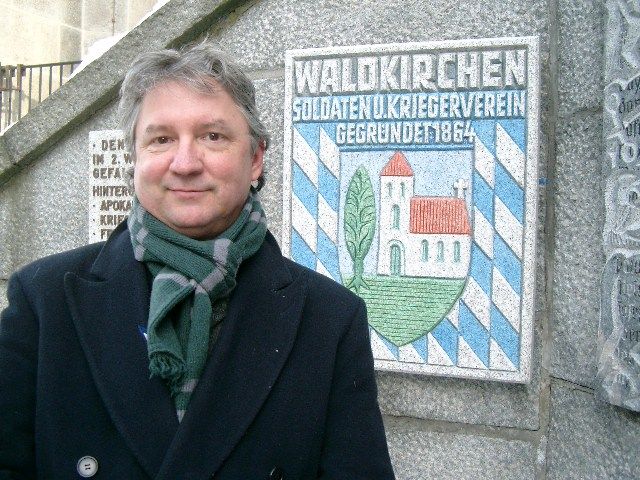
Hofvonstein is nestled between Austria and Germany, along the border of the Czech Republic. Its southern border is the river Danube; its north border is the Vltava River. It is approximately 120 km [75 miles] long and 40 km [25 miles] wide.
Principal cities include the capital of Waldkirchen (formerly Leninburg), Stürmburg; and Löwenhof.
Hofvonstein has been a textiles industry center for all of Europe since the early part of the 19th century, using its abundant water power in the beginning of the Industrial Revolution.
|
Hail to thee, our land
beloved, Fields ever growing, |
---click here to hear it played--
![]()
from Tolstoy's
"Kutuzov fell back in the direction of Vienna, destroying behind him the bridges over the rivers Inn (at Braunau) and Traun (at Linz). On October twenty-third the Russian troops were crossing the river Enns. At midday the Russian baggage train, artillery, and columns of troops were defiling through the town on Enns on both sides of the bridge.
"It was a warm, rainy, autumnal day... The little town below could be seen with its white, red-roofed houses, its cathedral, and its bridge, on both sides of which steamed swarming masses of Russian troops. Also visible in the bend of the Danube were ships, an island, and a castle with a park surrounded by the waters of the confluence of the Enns and the Danube, the craggy left bank of which was covered with pine forest, and, beyond, a mysterious background of green ridges and blue ravines. The turrets of a nunnery rose above what seemed wild, virgin forest, and far away, across the Enns, the enemy's cavalry patrols could be seen on the hillside."
The astute reader has already noticed that Kutuzov and his army have fallen back to the southeast corner of Hofvonstein.
After a summer vacation to Hofvonstein in 1873, to the springs around the source of the Vltava River in the eastern mountains, Czech composer Bedrich Smetana was inspired to write his most famous piece, "The Moldau," which is the German name for the Vltava. It had its Hofvonsteiner premiere in Waldkirchen in 1874, soon after its world premiere. A statue of Smetana stands in the national park at the source of the river.
